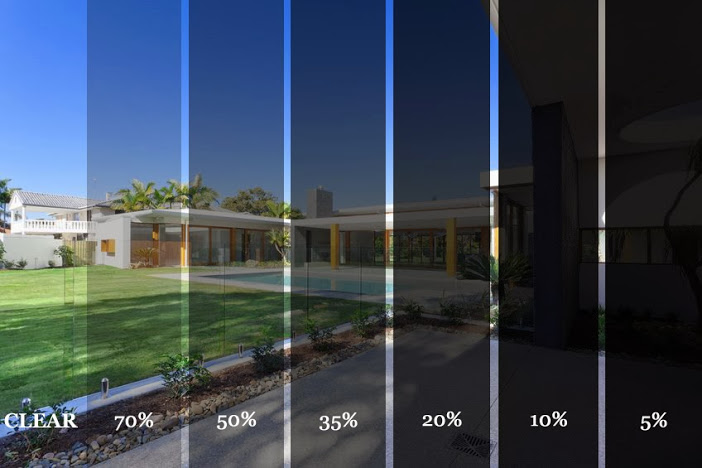Leading Advantages of Installing Residential Window Tint for Your Property
Leading Advantages of Installing Residential Window Tint for Your Property
Blog Article
Exactly How Residential Window Tinting Enhances Your Home's Energy Effectiveness
Residential home window tinting provides a compelling service for house owners seeking to improve power effectiveness within their living areas. By applying specialized movies to windows, it properly reduces warm transfer, consequently stabilizing interior temperature levels and decreasing the demand for too much heating or air conditioning.
Comprehending Home Window Tinting
Recognizing window tinting is essential for house owners seeking to boost both comfort and energy performance in their space. Residential Window Tint. Window tinting involves the application of a thin film to the interior or exterior surface of glass windows. This movie can substantially modulate the quantity of sunlight and warmth that enters a home, thus influencing indoor climate problems
There are various types of window tinting movies available, each with unique residential properties. For circumstances, colored films absorb solar power, while reflective films deflect it far from the glass surface. Ceramic films provide an equilibrium of visibility and warmth denial, making them a preferred choice among property owners. The performance of window tinting is typically measured by its Visible Light Transmission (VLT) percent, which suggests just how much light can go through the film.
Advantages of Energy Effectiveness
Window tinting not just improves appearances yet additionally plays a substantial function in boosting power effectiveness within domestic areas. By lowering warmth transfer via home windows, tinted movies produce an extra secure indoor environment, which can cause substantial reductions in energy consumption for cooling and heating. This energy performance equates into reduced utility costs, supplying home owners with significant long-lasting financial savings.

Furthermore, home window tinting enhances the convenience of living rooms. By minimizing glow and blocking harmful UV rays, colored windows develop an even more pleasant environment, which can result in boosted well-being for residents. The protection against UV rays also assists protect furnishings and flooring from fading, contributing to the longevity of family things.
How Tinting Functions
Tinting movies operate with a combination of advanced products and technologies developed to regulate the amount of solar power entering a home. Mostly made up of polyester, these films often include ceramic or metal particles that absorb and show warm. This double ability allows them to substantially minimize the infiltration of ultraviolet (UV) rays and infrared radiation while allowing noticeable light to pass through.
The effectiveness of home window tinting is measured by its solar heat gain coefficient (SHGC), which shows just how much solar power is transmitted with the window. Reduced SHGC worths are more effective as they denote greater heat rejection. Furthermore, home window tints can feature a variety of shades, allowing house owners to tailor their aesthetic choices while improving energy performance.
In addition, these visite site films function as a barrier, avoiding warmth loss during chillier months by mirroring interior heat back into the living space. This thermal insulation impact matches the air conditioning advantages obtained during warmer months, contributing to a well balanced interior climate year-round. By handling solar energy efficiently, property home window tinting not just improves comfort but also plays an essential function in decreasing power consumption and decreasing energy expenses.
Choosing the Right Tint

There are different types of home window films readily available, including dyed, metalized, and ceramic. Colored movies are affordable yet might have limited resilience. Metalized films offer far better warmth being rejected yet can conflict with digital signals. Ceramic movies give superb heat control without jeopardizing click over here presence and are highly long lasting, making them a prominent choice.
Noticeable light transmission (VLT) is another vital variable, as it indicates the amount of natural light that can pass through the tinted glass. House owners ought to select a color with a VLT that matches their lighting preferences while still supplying adequate glare decrease.
Additionally, examining the solar warmth gain coefficient (SHGC) can aid determine just how well a color can obstruct warm from sunshine. A reduced SHGC indicates much better warm control, ultimately boosting power performance.
Installation and Maintenance Tips
Proper installation and upkeep are essential parts in making best use of the advantages of domestic home window tinting. To attain optimal results, it is suggested to hire a qualified professional for installation. This makes certain that the color is used properly, staying clear of air bubbles, wrinkles, or misalignment that could compromise efficiency. Specialists likewise use specialized methods and devices, which can enhance the sturdiness and performance of the tint.
Following installation, upkeep is important to prolong the life of the home window film. It is advised to wait a minimum of thirty days prior to cleaning up the tinted home windows to permit the adhesive to cure completely. When cleaning, use a soft fabric and a mild, ammonia-free cleaner to avoid damaging the movie. Avoid rough materials that could scrape the surface area.
Dealing with these problems promptly can stop additional damage and preserve power performance. By sticking navigate here to these setup and maintenance suggestions, home owners can ensure their window tinting continues to provide substantial power savings and comfort for years to come.
Final Thought
In conclusion, domestic window tinting serves as a reliable service for boosting energy performance within homes. By decreasing heat transfer and blocking unsafe UV rays, home window films contribute to lower power intake and enhanced interior comfort.
Window tinting entails the application of a thin movie to the inside or outside surface area of glass home windows. By reducing warm transfer via windows, tinted movies create a much more secure indoor environment, which can lead to substantial reductions in power intake for heating and cooling.The efficiency of window tinting is measured by its solar warm gain coefficient (SHGC), which suggests how much solar power is transmitted with the window. By managing solar power successfully, domestic window tinting not only enhances comfort but also plays an essential role in reducing energy intake and lowering energy bills.
By minimizing warm transfer and obstructing dangerous UV rays, home window films add to reduce power consumption and enhanced interior convenience.
Report this page